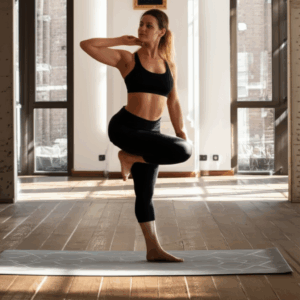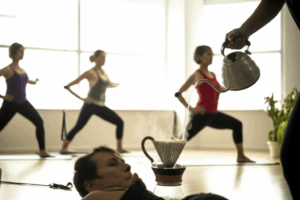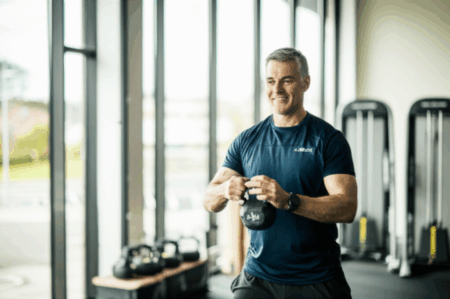A groundbreaking new study suggests that achieving significant improvements in both physical strength and mental well-being doesn’t require lengthy gym sessions, but rather a mere five minutes of daily bodyweight exercises. This research challenges the long-held notion that substantial time commitments are necessary for tangible health benefits, offering an accessible solution for even the busiest individuals.

The Power of Eccentric Training in Short Bursts
The study, led by a team from Edith Cowan University (ECU) in Australia and published in the European Journal of Applied Physiology, investigated the impact of short, eccentric bodyweight exercises. Eccentric training focuses on the “lowering” or muscle-lengthening phase of a movement, where muscles are gradually stretched while under tension. This approach has long been recognized for its effectiveness in building strength and size.
The research involved 22 “sedentary but healthy” participants who performed a five-minute daily routine for four weeks. The exercises included:
- Chair Squats: Slowly sitting down over five seconds, then standing up normally.
- Chair Reclines: Gradually lowering the upper body against a sturdy chair.
- Wall Push-ups: Focusing on the controlled lowering phase against a wall.
- Heel Drops: Slowly lowering heels off a step.
Each exercise was performed for 10 repetitions, with a strict tempo that emphasized a five-second eccentric phase and a one-second concentric (lifting) phase.
Remarkable Physical Gains
Despite the minimal time investment, participants experienced notable physical improvements. After just four weeks, the group showed significant enhancements in various areas:
- Muscle Strength: An average increase of 13% in overall strength, measured by an isometric mid-thigh pull. Push-up performance specifically improved by an impressive 66%.
- Strength Endurance: Sit-up endurance saw a 51% improvement.
- Flexibility: A 9% increase in sit-and-reach scores was observed.
- Cardiovascular Health: Participants showed a small but significant decrease in average post-exercise heart rate during a 3-minute step test, indicating improved cardiovascular efficiency.
Professor Ken Nosaka, an ECU sports scientist and lead researcher, emphasized that eccentric exercises are highly effective for improving fitness and are accessible to most people as they utilize body weight, eliminating the need for gym equipment. He also noted that these exercises can be spread out throughout the day, making them even more achievable for those with limited time.

Significant Boost to Mental Well-being
Beyond the physical benefits, the study also reported a significant boost in the participants’ mental health. Mental health scores rose considerably, with participants reporting a 16% improvement in overall well-being and a 20% increase in subjective vitality.
This aligns with a growing body of evidence suggesting that even short bursts of physical activity can have a profound positive impact on mental health. Exercise is known to reduce stress and anxiety, alleviate symptoms of depression, improve mood, concentration, and alertness, and boost overall self-esteem. It stimulates the release of endorphins, which act as natural painkillers and mood enhancers, while also reducing cortisol (stress hormone) levels.
Previous studies have also highlighted that regular physical activity, even in small amounts, can reduce the risk of developing mental illnesses and can be as effective as antidepressant medication or psychological treatments for mild to moderate depression.
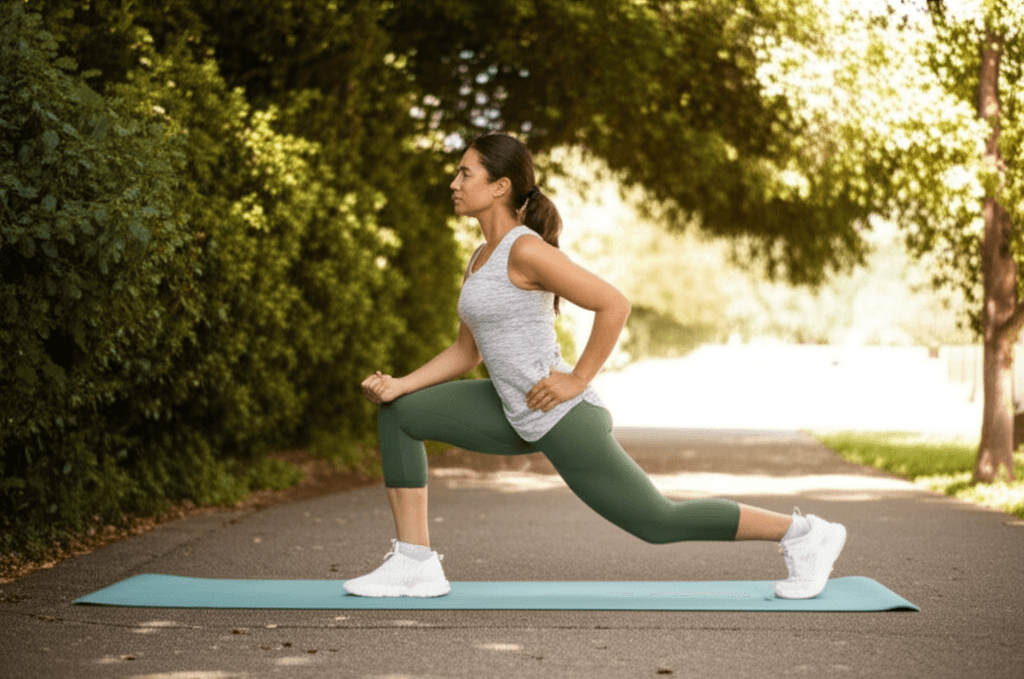
The Broader Implications of Micro-Workouts
The findings from this ECU study contribute to a burgeoning field of research on “micro-workouts” or “exercise snacks,” which advocates for integrating short, intense bouts of physical activity into daily routines. This approach offers a practical solution for individuals who struggle to meet traditional exercise guidelines due to time constraints or other barriers.
Other studies have also demonstrated the diverse benefits of short-duration exercise:
- Brain Health: Just five minutes of moderate to vigorous physical activity daily may help lower the risk of developing Alzheimer’s disease and other forms of dementia, particularly in older adults.
- Cardiovascular Health: As little as five minutes of moderate-to-vigorous activity daily can positively affect long-term heart health. Even micro-walks (10-30 seconds with breaks) may burn more calories than longer strolls over the same distance, revving up metabolism.
- Mortality Risk Reduction: Engaging in vigorous intermittent physical activity (VILPA) for even 1-2 minute daily bouts has been linked to a 38-40% greater reduction in the risk of all-cause and cancer mortality, and a 48-49% greater reduction in cardiovascular mortality.
- Appetite Control: Splitting exercise into short chunks can also aid in appetite control, with studies showing increased satiety.
While traditional exercise recommendations often suggest 150 minutes of moderate or 75 minutes of vigorous aerobic exercise per week, this new research underscores that “some exercise is better than nothing,” and even minimal amounts can yield substantial health benefits. The key often lies in the intensity of the activity, ensuring the heart rate is sufficiently elevated.
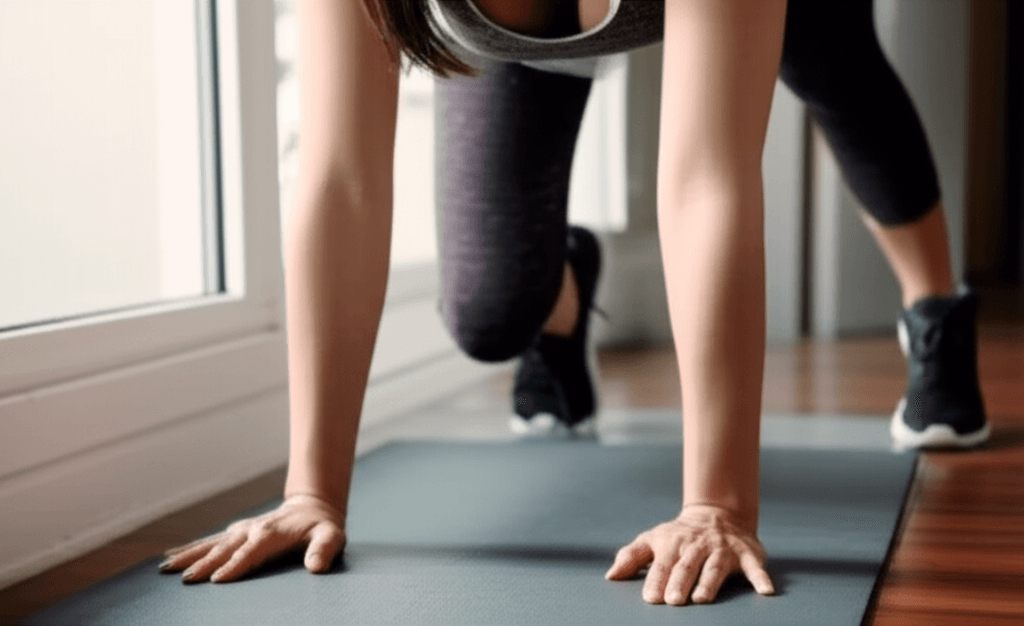
Integrating the 5-Minute Routine into Your Day
The simplicity and accessibility of this five-minute routine make it highly adaptable to almost any schedule. Since the exercises are bodyweight-based, no special equipment or gym membership is required. As Professor Nosaka suggests, these short bursts of activity can even be spread throughout the day.
For those looking to incorporate this routine, here are the core exercises:
- 10 Chair Squats
- 10 Wall Push-ups
- 10 Chair Reclines
- 10 Heel Drops
Focus on the slow, controlled lowering phase (eccentric contraction) for approximately five seconds, followed by a quicker lifting phase. This targeted approach maximizes the benefits of each brief movement.
This emerging paradigm of micro-workouts offers a compelling alternative for maintaining and improving health, proving that consistency and intensity, even in small doses, can lead to remarkable and sustainable results for both physical fitness and mental well-being.

